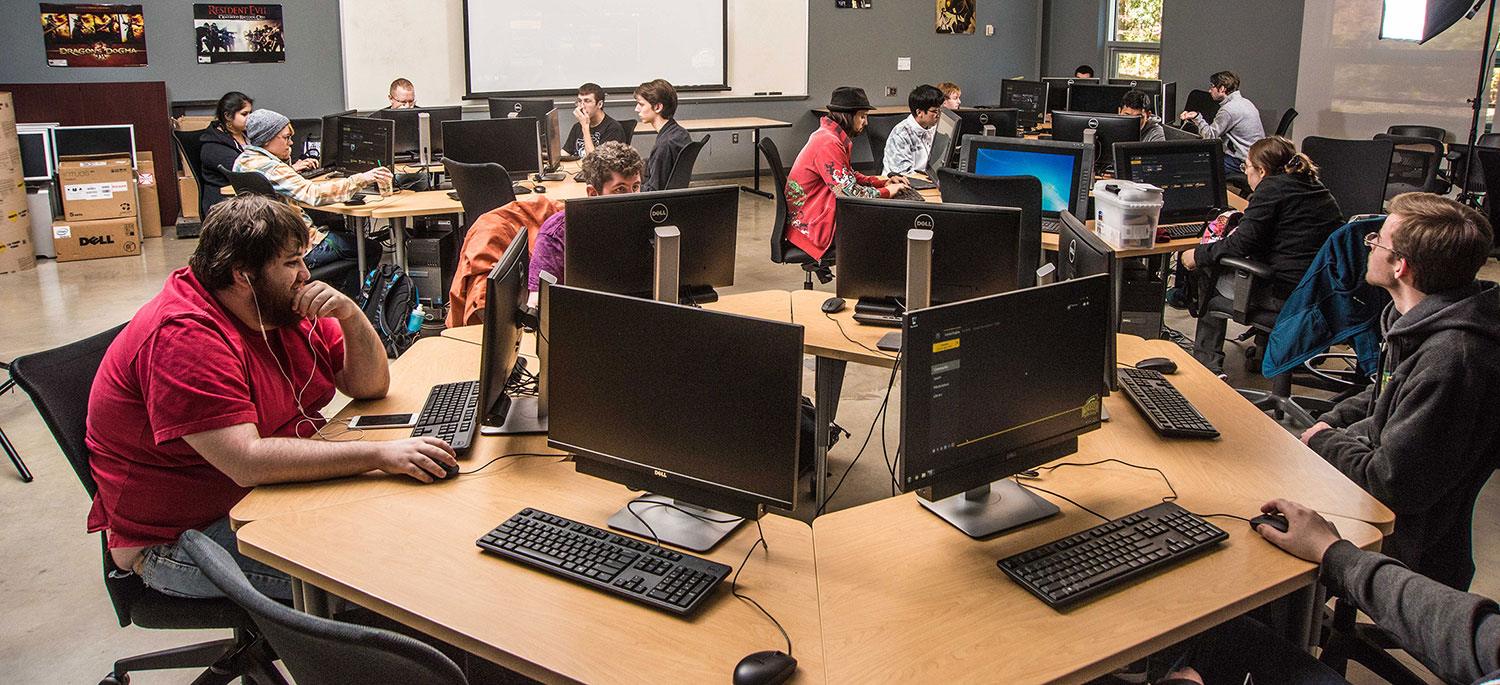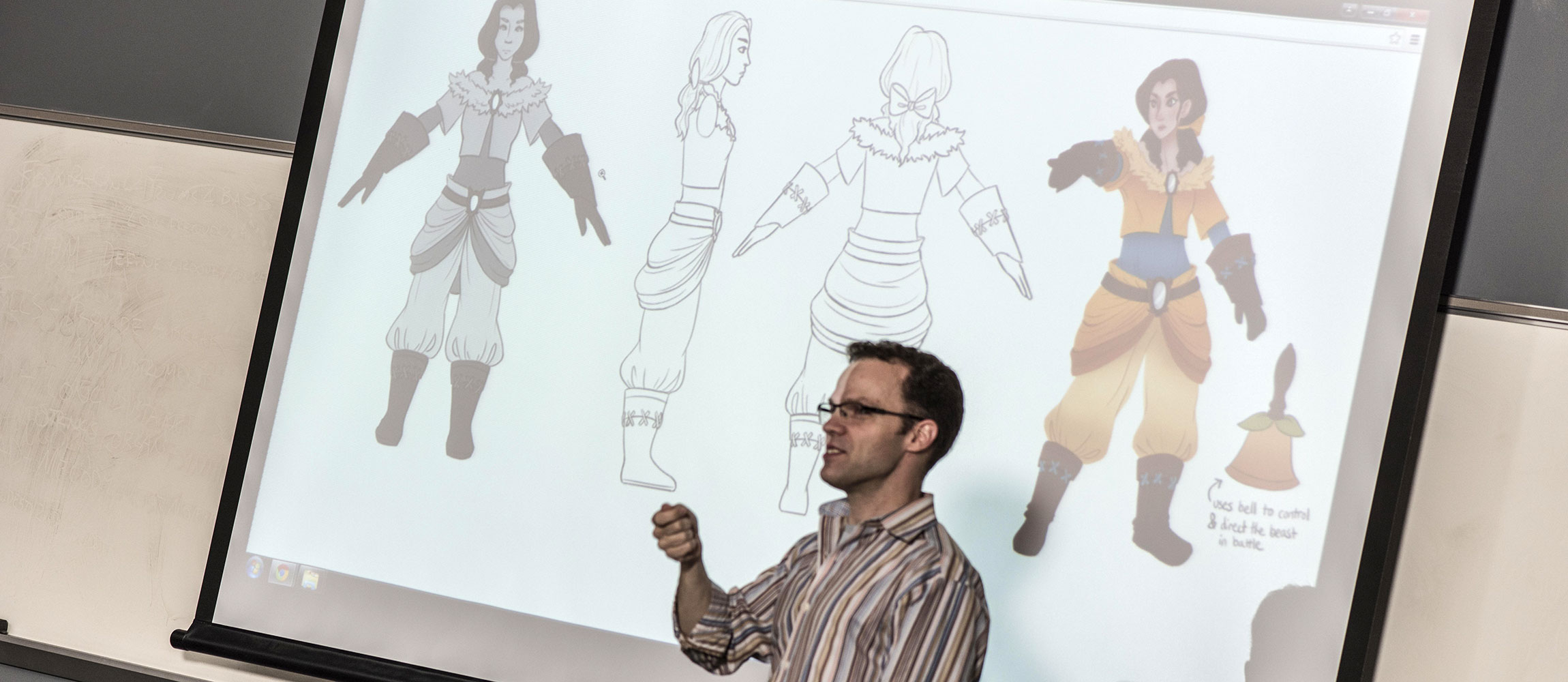Using Technology to Bring Worlds to Life
The Computer Game Design program arms you to conquer the working world through portfolio courses, a pre-internship seminar, internships and a senior project. You can also network with employers at the Senior Expo, and those who want to start their own businesses can study Game Entrepreneurship. You’ll learn to balance the demands of both science and art in your work, allowing you to develop games that can entertain or educate your audiences. This interdisciplinary approach lets you specialize in one area while learning the language of many, giving you a firm grasp of the big picture. That makes you better collaborators and managers -- and highly sought-after employees.
Requirements in the following STEM subjects give you the foundation to build realistic and lifelike games from the ground up:
- Calculus
- Physics, and
- Programming
Requirements in the following liberal arts subjects will help you develop complete and intriguing stories, fully-dimensional characters, and immersive game play that helps your creations stand out:
- visual art
- sound
- music, and
- writing
Some of the specialties you'll learn will include:
Art and Animation
Design characters that people will fall in love with, or will love to hate. Create environments based in reality or a rich and engaging fantasy world. You’ll expand these foundations with visual effects, lighting, believable motion, facial modeling, and normal mapping. You’ll become fluent with industry applications like Adobe Creative Cloud, 3DSMax, and Unity.

Development
Most of our students start with no programming experience and grow into using the same tools and languages used in studios the world over. Learn development of everything from text games to C and C++ using development tools like Microsoft Visual Studio.
Music
With a dedicated music lab, you’ll use professional-grade software like Logic Pro X, Avid Pro Tools, and work with MIDI controllers, audio interfaces, and other professional grade hardware. By expanding your understanding of music theory and the practice of planning, production, and post-production of sound effects, you’ll seamlessly blend voice acting, music, ambiance, and video into your games.
Writing and History
Learn about where games have been and where they’re going, from professors who worked at studios that produced some of the biggest names in industry. By taking a comprehensive look at the most notable games of the past, you’ll explore story development to write compelling game narratives in the present.
Special Topics
Many of our faculty specialize in unique and fascinating fields. From learning motion capture with Professor Boris Willis to mobile game design and VR with Professor Jared Bruhn and Director Sang Nam. Join Dr. Scott Martin to learn about game entrepreneurship and Professor James Casey for advanced subjects in game design.

